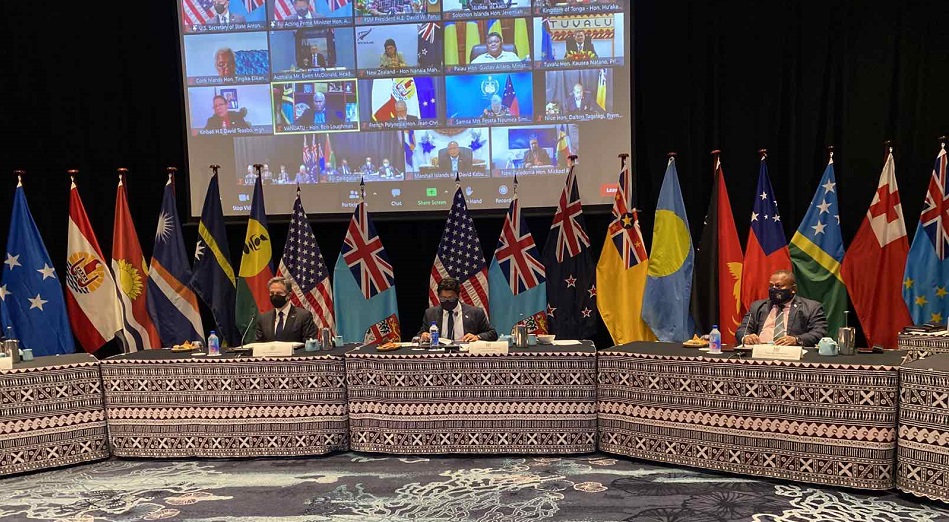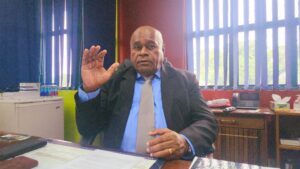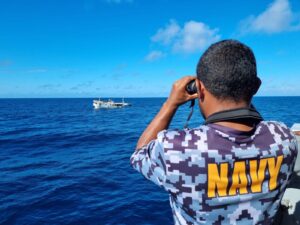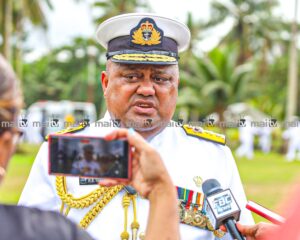Security was tight at the Sofitel Resort on Denarau Island in Nadi yesterday during meetings between Fiji government officials, Pacific Island leaders, and the US – with the latter dismissing the notion that it only tries to grow its presence in the region when it perceives security threats.
The meetings hosted by Antony Blinken, the first by a US Secretary of State in nearly 40 years, is also the second consecutive engagement in the Pacific by a top US official following President Joe Biden’s address, a first by a sitting president, to the Pacific Island Forum leaders six months ago.
In 1985, when George Schultz, State Secretary then visited Fiji, it was linked to increased Soviet presence in the Pacific at the time. Blinken’s visit 39 years later, yesterday, coincides with Russia’s potential invasion of Ukraine. It is also happening the same week the US released its latest Indo-Pacific Strategy, highlighting that its “intensifying focus” in the Indo-Pacific, among other things, stems from China’s ‘coercion and aggression’ which it states will present mounting challenges for countries of the region.
“This is not at all, a case of us being here coming here and being focused here for security reasons, it’s much more fundamental than that,” Blinken said during a press conference alongside Fiji’s Acting PM Aiyaz Sayed-Khaiyum. “As I’ve said throughout this trip, our return to the Pacific now, even as we continue to work relentlessly to resolve the crisis in Ukraine is in itself a demonstration of our commitment to staying focused on this region, and that includes the Pacific islands.”
Blinken said the engagements and the visits stem from the US’ recognition of the importance of the Indo-Pacific region to its future, security, and prosperity.
“When we’re looking at this, this region that we share, we see it as the region for the future, vital to our own prosperity, vital to our own progress. Sixty percent of global GDP is here, 50 percent of the world’s population is here. And for all the challenges that we have been at the moment we’re working on together, it’s also a source of tremendous opportunity.
“It is about, building a free and open Indo Pacific defending it with democratic institutions with transparency, with a commitment to a rules-based order that we share. It’s about connecting our countries together, deepening and stitching together different partnerships and alliances. It’s about building shared prosperity, with new approaches to economic integration, some of which we talked about today, with high standards. Yes, it is about security. And we’ve been working through the strategy to deepen integrated deterrence across the region, the interoperability of our forces. And ultimately, it’s also about resilience, coming together to end COVID, coming together to deal with the climate crisis, coming together to build back better from the economic crisis that has resulted from COVID. So this is a strategy for the long term because we see our long-term future in the Indo Pacific.”
Released yesterday, Blinken said the country’s Indo-Pacific strategy is neither in opposition to any country nor dictate with whom they should work but ensure that such engagements in the region are built on a commitment to the same values, to democracy, to human rights, to the rule of law, to regional peace and stability.
“It’s about the shared future we want to build together for people across this region. We’re proud to be building that future with Fiji. And together we are committed to a free and open Indo-Pacific in which people can live their lives freely and make their own decisions, in which countries can engage together and choose with whom they work and associate, and in which we together try to build an affirmative vision for the future, and one that actually delivers concrete results for our people, both in meeting the challenges that we’re facing that are very evident to everyone now, starting with COVID, climate, the impact of emerging technologies on all of our lives – as well as finding the opportunity that I think is so powerful in this region.”
Sayed-Khaiyum said the meetings with Blinken and his delegation mark the start of a more direct partnership between Fiji and the USA and a new era for America in the blue frontier of the Pacific.
“But most certainly we welcome the U.S. coming back into the Paris Agreement fold, and for us, that’s critically important. I think that Secretary Blinken’s presence here signifies that. And for us, climate finance, for example – we talked about finance equates to development finance – and the ability to get some of the larger countries to be able to participate in the Paris Agreement, and their willingness to listen, understand, and indeed engage with Pacific Island countries is most welcome, as we welcome any other country that is very much in the same space as us in respect of addressing issues pertaining to climate change.”
Blinken also announced some initiatives it says will advance engagement and investments in the Indo-Pacific region including its intentions to open a U.S embassy in Honiara, Solomon Islands, assist Pacific Island countries to tackle challenges brought on by climate change and work together to build Fiji’s capacity to prevent, detect, and respond to future health emergencies.
Papua New Guinea was the notable absentee from the meeting.









